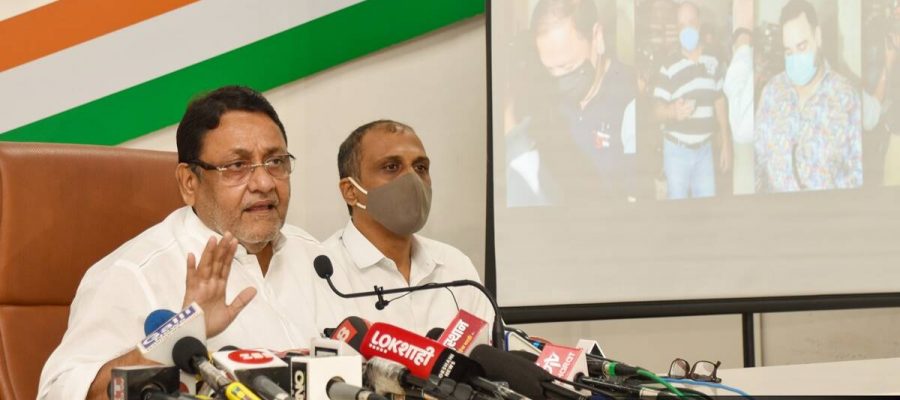The NCB had claimed that the accused had conspired to procure, sell, purchase and transport 194.6 kg of ganja and 6 CBD (cannabidiol) sprays, categorised as commercial quantity.
There is no case for illicit drug trafficking and conspiracy against Sameer Khan, the son-in-law of Nationalist Congress Party (NCP) leader Nawab Malik, a special court has said in its detailed bail order.
Arrested in January, Khan, along with two others, were granted bail last month.
The Narcotics Control Bureau (NCB) had claimed that the accused — Khan, Rahila Furniturewala and Karan Sejnani – had conspired to procure, sell, purchase and transport 194.6 kg of ganja and 6 CBD (cannabidiol) sprays, categorised as commercial quantity.
Relying on the Chemical Analyser’s (CA) report submitted on the seizures annexed by the NCB to the chargesheet filed against the accused, the court said that section 27 A and 29 of the Narcotic Drugs and Psychotropic Substances (NDPS) Act related to financing and illicit trafficking of drugs and conspiracy could not be sustained against Khan.
“It is pertinent that the applicant accused (Khan) has already stated that he conducts such business pertaining to nicotine products. Now, considering the fact that the CA report has specifically enumerated the contraband material to 11 samples to have not detected for cannabis, the theory of the prosecution with regard to the invoking of section 29 fails and apart from the said contention in the reply, nothing is brought on record to show the factum of connivance with each other or that of conspiracy prima facie,” the court said.
The court was also informed during the bail arguments about two contradictory panchnamas related to alleged drug recovery and the fact that one was not made part of the chargesheet. “This particular aspect propagates for the conduct of the investigating machinery and the reason for not incorporating the said panchnama is not answered till date,” the court said.
Source: Read Full Article


